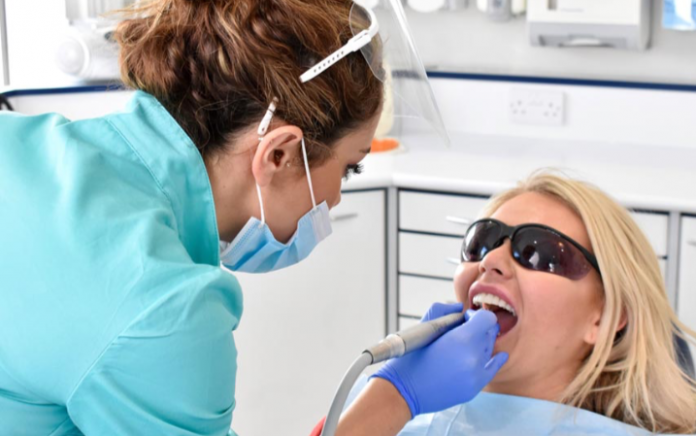Dr Hanna Kinsella, Owner and Principal Dentist of Kiln Lane Dental, argues that good oral health is crucial for our overall health and wellbeing
Good oral health is absolutely vital for our overall health and wellbeing. Without sufficient oral hygiene, the bacteria in our mouths can reach levels that might lead to oral infections such as tooth decay and gum disease.
Our teeth are also necessary to give our face structure and to help express our emotions. Oral health is, therefore, absolutely key when it comes to our confidence and self-esteem.
Promoting oral health is necessary to prevent oral health disease before it occurs or to reduce the impact of disease.
This is usually achieved through a variety of strategies from community-based initiatives to school education programmes, to Government campaigns.
Dental safety during the pandemic
Lockdown has undoubtedly impacted dentistry in a number of ways. In fact, many dentists noticed that some people were worried about visiting a dentist during the pandemic, especially after the World Health Organization (WHO) suggested not to in an announcement in August.(1)
However, it’s actually a low-risk activity and most surgeries are now open as normal but with extra precautionary measures in place, such as no waiting rooms or extra cleaning time between appointments.
Thanks to this and the PPE worn by dentists and staff, dentistry remains extremely safe.
That said, some patients still have concerns about transmission of the virus during a dentist appointment and for this reason, we may expect to see a drop in attendance for routine appointments.
In 2020, a poll conducted by the ADG indicated that more than 13 million adults in the UK had missed, or preferred not to attend, dental appointments since the lockdown began on 24 March.(2)
I suspect that it will take a significant amount of time for all these delayed and missed appointments to be recouped and that this in itself will have a detrimental impact on the oral health of the country, and indeed the world.
How the pandemic impacts restorative dentistry
Restorative dentistry will undoubtedly be impacted as a result of this too, with many dentists seeing more patients who need damaged or missing teeth repaired or replaced. Fortunately, though advances in these areas mean that there are more options than ever when it comes to fillings, crowns, bridges and implants.
Composite bonding works well when the teeth are already straight and generally patients like to have teeth whitening done in advance too. It’s important to see a qualified dentist as it requires a lot of skill to maintain the depth of the tooth. Ideally, we should only be reducing the enamel by 0.3mm – as thin as a contact lens.
Composite bonding is an increasingly popular cosmetic dental treatment that is used to improve the shape, colour and overall appearance of patients’ teeth. It uses the same resin material used for white fillings and is most frequently used on the front teeth – those that show when you smile.
There have been huge advances in the materials used in bonding dentistry in recent years, meaning composite bonding can be used for disguising minor imperfections in the front teeth, closing small gaps and hiding minor tooth rotations, with no damage to your teeth.
Composite bonding is a pain-free experience that requires, in most cases, just one visit to the practice. Your dentist will be able to choose a shade of resin that closely matches the colour of your teeth, meaning that the results will look entirely natural.
The resin is applied to your teeth, and the dentist then carefully shapes it to hide any imperfections. Once it’s been shaped, it can be hardened using a special light. Although composite bonding doesn’t last as long as veneers, it can be a cost-effective solution that can be repeated with no damage to teeth.
Veneers are a good treatment for teeth that are stained, chipped or not aligned on top of each other. They look natural and don’t require a major procedure. They can also be used to close small gaps when braces aren’t suitable. Veneers are basically a small tooth-coloured piece of porcelain that is bonded on top of your own tooth. You can have one veneer fitted or a whole set.
Composite bonding prices range from £250, for veneers, prices are from £800.
Composite bonding requires correction after five years and six months follow up appointments to correct and polish the teeth. Veneers require less maintenance as they are made from a material that doesn’t require polishing and can last over ten years.
Good oral health is key
Whilst these restorative treatments are no substitute for good oral health in the first place, they can help to rectify the problems caused by poor oral health in order to improve the look and health of the teeth, aiding confidence and self-esteem.
References
(1) It’s Safe to Go the Dentist During the Coronavirus Pandemic
(2) Millions of missed appointments: UK dentistry feels heat from COVID-19: Coronavirus (COVID-19) microsite











